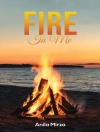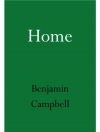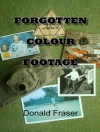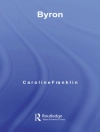In his 1918 autobiographical essay, ‘A Negro Poet Writes, ‘ Claude Mc Kay (1889–1948), reveals much about the wellspring of his poetry.
‘I am a black man, born in Jamaica, B.W.I., and have been living in America for the last years. It was the first time I had ever come face to face with such manifest, implacable hate of my race, and my feelings were indescribable … Looking about me with bigger and clearer eyes I saw that this cruelty in different ways was going on all over the world. Whites were exploiting and oppressing whites even as they exploited and oppressed the yellows and blacks. And the oppressed, groaning under the leash, evinced the same despicable hate and harshness toward their weaker fellows. I ceased to think of people and things in the mass. [O]ne must seek for the noblest and best in the individual life only: each soul must save itself.’
So wrote the first major poet of the Harlem Renaissance, whose collection of poetry, Harlem Shadows (1922), is widely regarded as having launched the movement. But Mc Kay’s literary significance goes far beyond his fierce condemnations of racial bigotry and oppression, as is amply demonstrated by the universal appeal of his sonnet, ‘If We Must Die, ‘ recited by Winston Churchill in a speech against the Nazis in World War II.
While in Jamaica, Mc Kay produced two works of dialect verse, Songs of Jamaica and Constab Ballads, that were widely read on the island. In richly authentic dialect, the poet evoked the folksongs and peasant life of his native country. The present volume, meticulously edited and with an introduction by scholar Joan R. Sherman, includes a representative selection of this dialect verse, as well as uncollected poems, and a generous number in standard English from Harlem Shadows.
قائمة المحتويات
Introduction
Works by Claude Mc Kay
From
Songs of Jamaica
Quashie to Buccra
Hard Times
Cudjoe Fresh from de Lecture
A Midnight Woman to the Bobby
My Native Land, My Home
My Mountain Home
Jubba
From
Constab Ballads
Preface
Bennie’s Departure
Consolation
A Recruit on the Copy
The Apple-Woman’s Complaint
The Heart of a Constab
Sukee River
Uncollected Poems
Invocation (
Seven Arts, October 1917)
To the White Fiends (
Pearson’s Magazine, September 1918)
The Dominant White (
Liberator, April 1919)
A Capitalist at Dinner (
Liberator, July 1919)
The Negro Dancers (
Liberator, July 1919)
The Little Peoples (
Liberator, July 1919)
To ‘Holy’ Russia (
Workers’ Dreadnought, February 1920)
Song of the New Soldier and Worker (
Workers’ Dreadnought, April 1920)
Battle (
Worker’s Dreadnought, April 1920)
Negro Spiritual (
Liberator, May 1922)
The White House (
Liberator, May 1922)
From
Harlem Shadows
America (
Liberator, December, 1921)
The Tropics in New York (
Liberator, May 1920)
Flame-Heart
Home Thoughts
On Broadway (
Cambridge Magazine, Summer 1920)
The Barrier (
Cambridge Magazine, Summer 1920)
North and South (
Cambridge Magazine, Summer 1920)
After the Winter (
Liberator, Juy 1919)
Harlem Shadows (
Pearson’s Magazine, September 1918)
The White City (
Liberator, October, 1921)
My Mother (
Liberator, March 1920)
In Bondage (
Liberator, August 1921)
Heritage
When I Have Passed Away
Enslaved (
Liberator, July 1921)
Winter in the Country (
Cambridge Magazine, Summer 1920)
Spring in New Hampshire (
Liberator, August 1919)
On the Road, (
Liberator, March 1922)
The Harlem Dancer (
Seven Arts, October 1917)
The Tired Worker (
Liberator, August 1919)
Outcast
I Know My Soul
Birds of Prey (
Workers’ Dreadnought, October 1920)
Exhortation: Summer, 1919
Baptism (
Liberator, October 1921)
If We Must Die (
Liberator, July 1919)
Subway Wind (
Liberator, August 1921)
Poetry
A Prayer
When Dawn Comes to the City (
Cambridge Magazine, Summer 1920)
O Word I Love to Sing
Summer Morn in New Hampshire (
Worker’s Dreadnought, July 1920)
Romance
Flower of Love
A Memory of June (
Cambridge Magazine, Summer 1920)
One Year After
Jasmines (
Liberator, August 1921)
Memorial
Thirst (
Liberator, December 1921)












